Miroslav Jonaš
Hello generics, goodbye boilerplate!
#1about 5 minutes
Understanding the prevalence of boilerplate in enterprise code
Boilerplate code is common in large, well-architected applications due to consistent patterns, but it can be significantly reduced.
#2about 5 minutes
Explaining the core concepts of Redux state management
The Redux pattern uses a central store, actions, reducers, and effects to manage application state predictably.
#3about 4 minutes
Walking through a typical asynchronous data-loading flow
An example application demonstrates the sequence of actions and state changes for both successful data fetching and error handling.
#4about 9 minutes
Introducing TypeScript generics to reduce action boilerplate
TypeScript generics allow for creating reusable, type-safe constructs like a base action class to eliminate repetitive code.
#5about 7 minutes
Creating a generic reducer to handle common state changes
A custom `createGroupReducer` function uses generics to automatically handle loading, success, and failure states for actions.
#6about 6 minutes
Abstracting NGRX effects using generic helper functions
Generic creator functions like `createSwitchMapEffect` can encapsulate the common logic of listening for an action and handling API call results.
#7about 3 minutes
Using generics for common data structures like pagination
A generic `Pageable` class can standardize the structure for paginated API responses across an entire application.
#8about 1 minute
Adopting a generic-first mindset to improve code quality
Consistently applying generics helps you see code duplication as an opportunity to create powerful, reusable abstractions.
Related jobs
Jobs that call for the skills explored in this talk.
Hubert Burda Media
München, Germany
€80-95K
Intermediate
Senior
JavaScript
Node.js
+1
Matching moments
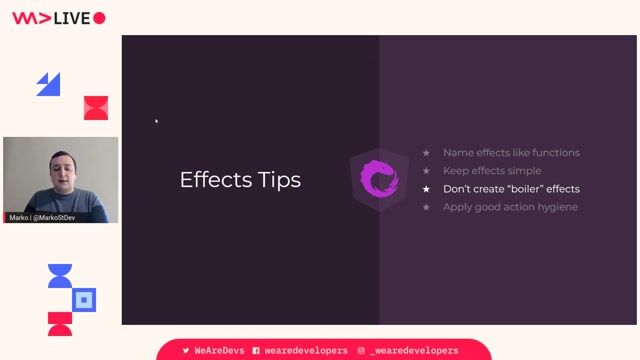
01:17 MIN
Avoid creating unnecessary boilerplate effects
NgRx Tips for Future-Proof Angular Apps
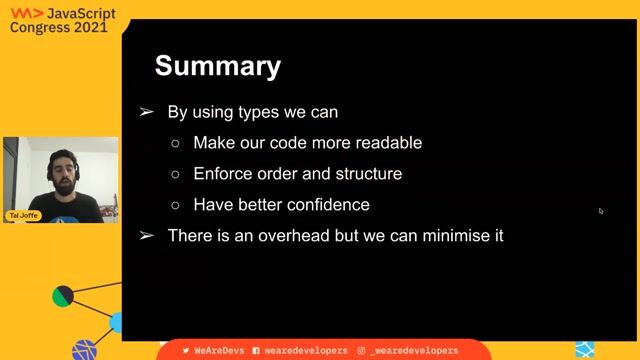
01:48 MIN
Summary of using types for scalable codebases
All you need is types

03:19 MIN
Identifying boilerplate and repetition in full-stack development
Build and Deploy a Fullstack App with Open Source Tooling
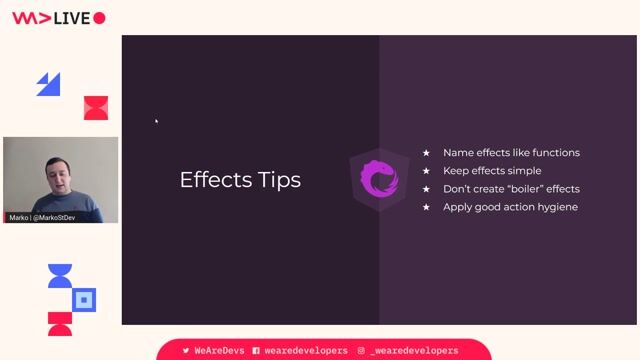
03:15 MIN
Adopting NgRx best practices for future-proof apps
NgRx Tips for Future-Proof Angular Apps
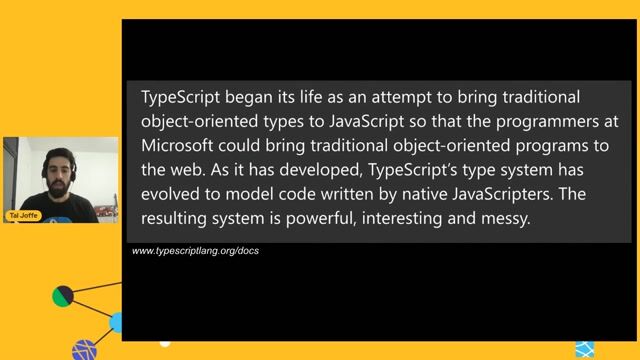
02:37 MIN
Understanding TypeScript's origins and role in scalability
All you need is types
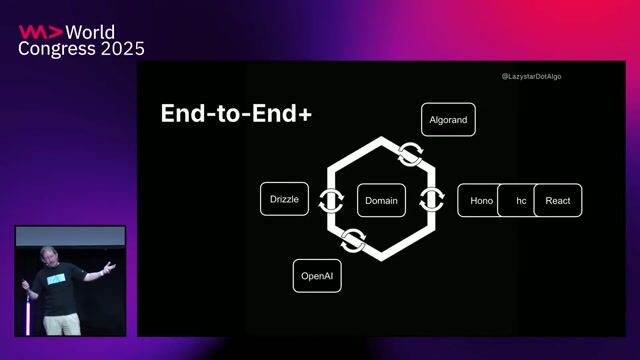
01:21 MIN
Final takeaways for building modern TypeScript applications
End-to-End TypeScript: Completing the Modern Development Stack

04:25 MIN
The challenge of building scalable frontend applications
Typescript, React and Atomic Design - a match made in heaven
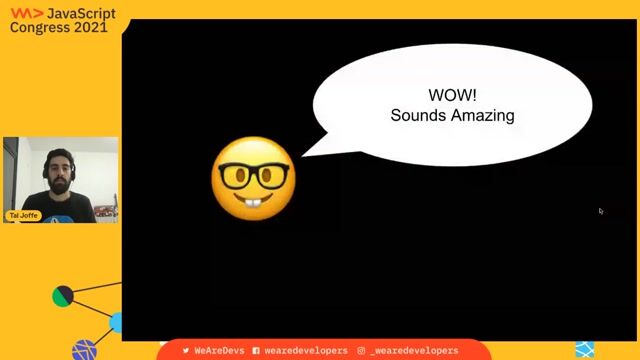
07:58 MIN
Minimizing boilerplate code with advanced TypeScript features
All you need is types
Featured Partners
Related Videos
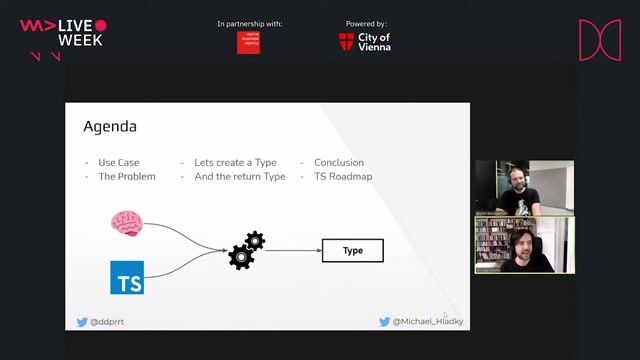 43:20
43:20The Art and Craft of Type Development
Michael Hladky & Stefan Baumgartner
 40:05
40:05Typescript, React and Atomic Design - a match made in heaven
Nathalia Rus
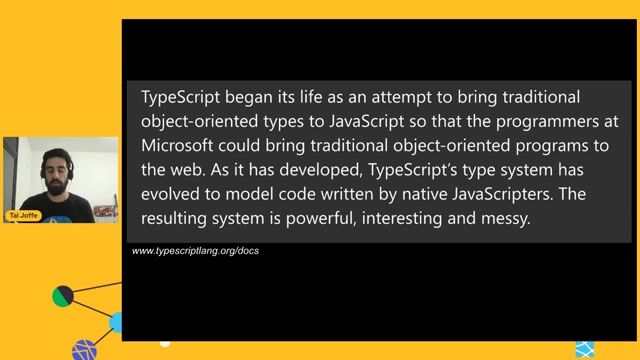 48:56
48:56All you need is types
Tal Joffe
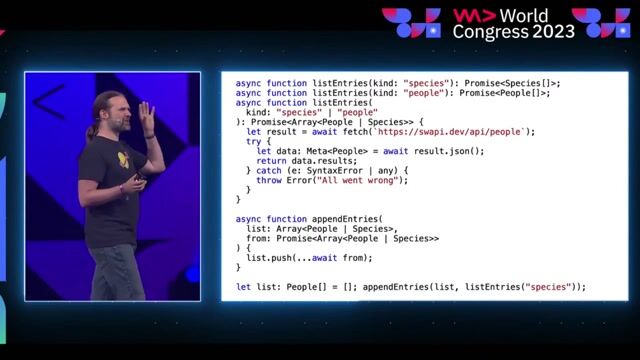 31:13
31:13Lies we Tell Ourselves As Developers
Stefan Baumgartner
 44:31
44:31Vuejs and TypeScript- Working Together like Peanut Butter and Jelly
Rob Richardson
 35:17
35:17Front-End Micro Apps
Serg Hospodarets
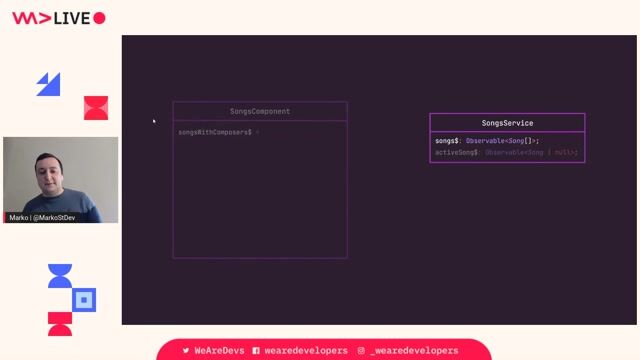 26:58
26:58NgRx Tips for Future-Proof Angular Apps
Marko Stanimirović
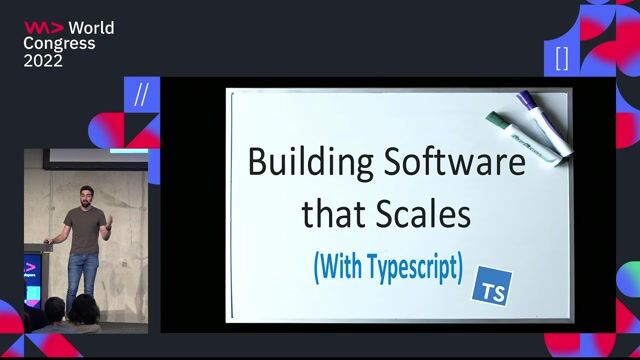 37:18
37:18Building software that scales with Typescript
Tal Joffe
Related Articles
View all articles



From learning to earning
Jobs that call for the skills explored in this talk.

Confideck GmbH
Vienna, Austria
Remote
Intermediate
Senior
Node.js
MongoDB
TypeScript

&why GmbH
Berlin, Germany
€50-70K
Junior
Intermediate
Senior
React
Next.js
TypeScript

Code Healers LLC
Hinesville, United States of America
Remote
€40-50K
Intermediate
Senior
PHP
.NET
React
+2

Adria Solutions ltd
Manchester, United Kingdom
£40-55K
REST
React
Next.js
WebPack
+5

Blue Code Solutions
Municipality of Valencia, Spain
Senior
PHP
API
React
Laravel
TypeScript
+1

Rescue
Senior
API
VoIP
React
Python
Vue.js
+3

Groupon
Chiva, Spain
Senior
REST
React
Node.js
Next.js
GraphQL
+1

Adria Solutions ltd
Manchester, United Kingdom
£45-60K
PHP
GIT
MySQL
Redis
+10

Client Server
Burnham, United Kingdom
Remote
React
TypeScript
React Native
Agile Methodologies
+2